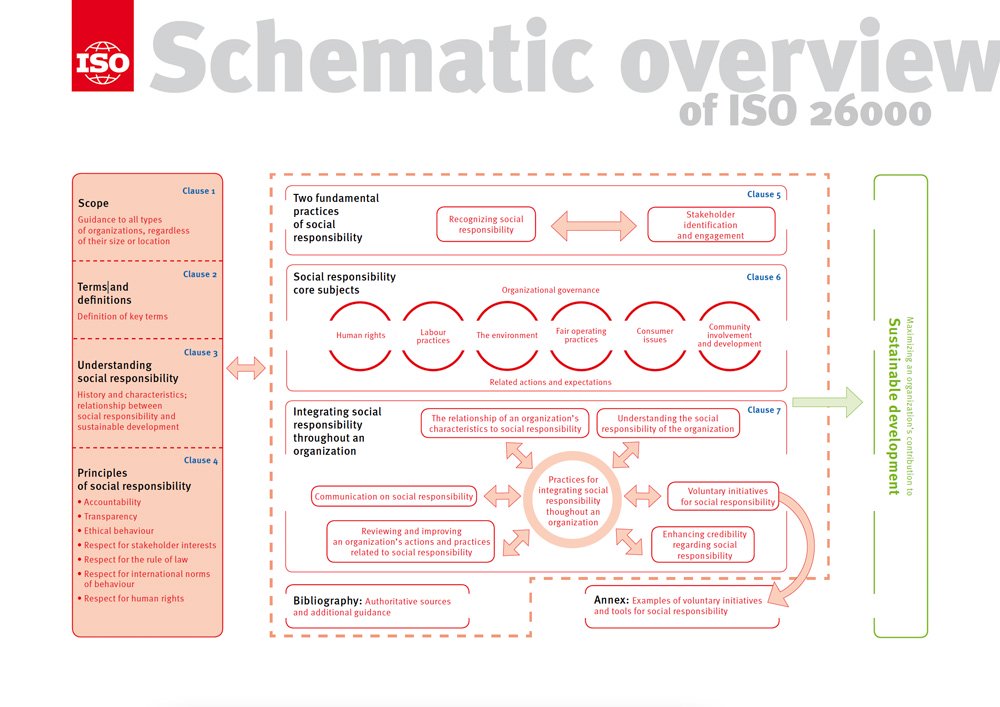
CSR - RSE
CSR (Corporate Social Responsibility) is a management concept whereby companies integrate social and environmental concerns in their business operations and interactions with their stakeholders on the way to sustainable development.
Corporate social responsibility is traditionally broken into four categories:
1. Environmental efforts
2. Philanthropy
3. Ethical labor practices
4. Economic responsibility.
The term corporate social responsibility (CSR) refers to practices and policies undertaken by corporations that are intended to have a positive influence on the world. The key idea behind CSR is to pursue other pro-social objectives, in addition to maximizing profits. Examples of common CSR objectives include minimizing environmental externalities, promoting volunteerism among company employees, and donating to charity.
For businesses and organizations committed to operating in a socially responsible way, there’s ISO 26000, a name which is recognized all over the world.
We have used/applied ISO 26000 as a guide/framework/basis to integrate/implement social responsibility into our values and practices.
It provides guidance to those who recognize that respect for society and environment is a critical success factor. As well as being the “right thing” to do, application of ISO 26000 is increasingly viewed as a way of assessing an organization’s commitment to sustainability and its overall performance.

